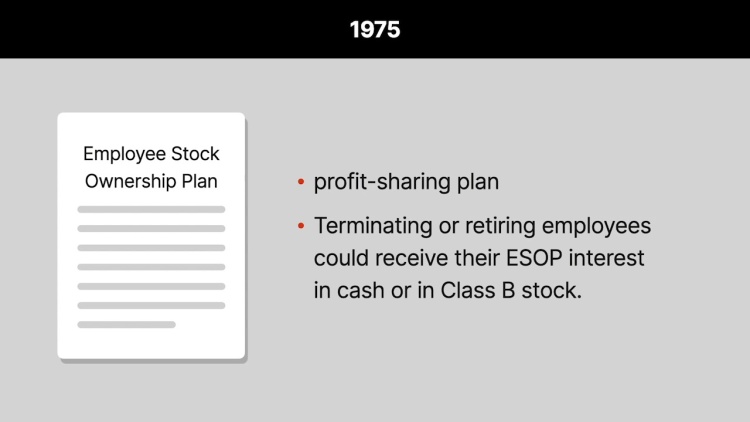Nixon v. Blackwell
Delaware Supreme Court
626 A.2d 1366 (1993)
- Written by DeAnna Swearingen, LLM
Facts
E.C. Barton & Co. (Corporation) (defendant) was a closely-held Delaware corporation. Upon founder E.C. Barton’s death, all of the Class A voting stock passed to employees, and only Class B non-voting stock passed to Barton’s family. The Corporation offered to repurchase Class B stock through a series of self-tender offers. The Corporation also set up an Employee Stock Ownership Plan (ESOP) that allowed employees to cash out or receive Class B stock on termination or retirement. The Corporation had a right to repurchase Class A stock on an employee’s death or retirement. The Corporation also entered agreements with top executives giving it the right to convert their Class A shares to Class B should they leave their roles, so new Class A shares could be issued to their replacements. Further, the Corporation took out life insurance policies on those executives benefiting the company. The Board resolved to use employee life-insurance benefits to repurchase Class B shares from employee estates. Fourteen Class B stockholders (plaintiffs) sued the Corporation and the directors (defendants) in the Court of Chancery alleging that the defendants (1) tried to force minority stakeholders to sell by paying only minimal dividends, (2) breached fiduciary duties by approving undue compensation, and (3) breached fiduciary duties by discriminating against non-employee stockholders. The court found the dividends were valid business judgments and the compensation was fair, but the court concluded the directors breached fiduciary duties to minority stockholders by the “inherently unfair” liquidity scheme. The court ordered the Corporation to repurchase Class B stock and to repurchase equal numbers of Class B shares in the future. The defendants appealed to the Delaware Supreme Court.
Rule of Law
Issue
Holding and Reasoning (Veasey, C.J.)
What to do next…
Here's why 907,000 law students have relied on our case briefs:
- Written by law professors and practitioners, not other law students. 47,100 briefs, keyed to 996 casebooks. Top-notch customer support.
- The right amount of information, includes the facts, issues, rule of law, holding and reasoning, and any concurrences and dissents.
- Access in your classes, works on your mobile and tablet. Massive library of related video lessons and high quality multiple-choice questions.
- Easy to use, uniform format for every case brief. Written in plain English, not in legalese. Our briefs summarize and simplify; they don’t just repeat the court’s language.





